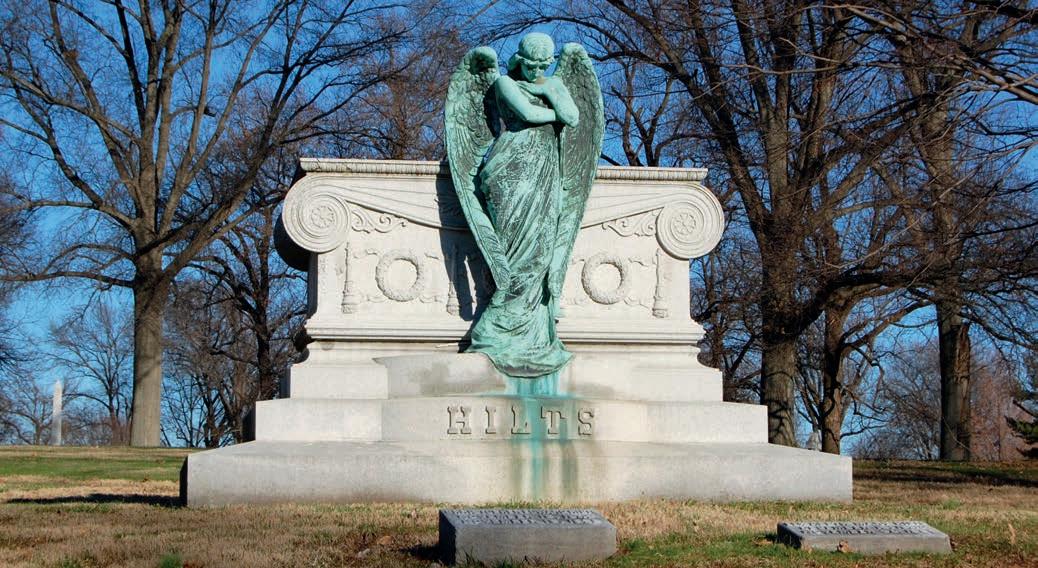4 minute read
Reeferfront Times
Next Article
35
[WEED LAWS]
Greenbacked
Medical-marijuana companies pour money into legalization PAC in campaign’s homestretch
Written by JASON HANCOCK
This story was originally published by the Missouri Independent.
With less than a month to go before voters head to the polls, the campaign to legalize recreational marijuana is getting a financial boost from the medical-marijuana industry.
Legal Missouri 2022 — the political action committee supporting a marijuana proposal that will appear on the November 8 ballot as Amendment 3 — has raised nearly $700,000 in large donations since October 1.
The money came from companies in the medical-marijuana industry, which under Amendment 3 would get first dibs on the more lucrative recreational licenses issued by the state to grow, manufacture and sell marijuana.
The largest contribution was a 00,000 check from pringfield based BD Health Ventures LLC, which under the medical-marijuana program was awarded two dispensary and three cultivation licenses.
A $100,000 check came from Grassroots OpCo LLC, which was awarded five dispensary licenses but is connected to a chain of at least 16 dispensaries across Missouri.
According to its July quarterly disclosure report with the Missouri Ethics Commission, Legal Missouri 2022 spent nearly $6 million getting Amendment 3 on the ballot.
On the other side of the issue is a PAC called Save Our State. Run by former lawmaker and longtime GOP political strategist Scott Dieckhaus, the PAC was created in early September to oppose Amendment 3.
Save Our State has not reported any contributions since it launched.
Amendment 3 asks voters whether to amend the Missouri Constitution to remove bans on marijuana sales, consumption and manufacturing for adults over 21 years old, with some caveats.
The amendment includes automatic expungement for certain people who have nonviolent marijuana-related offenses on their records. People who are still incarcerated would have to petition the courts to be released and have their records expunged.
It would create a regulated market where, just like for medical marijuana, the state would have the authority to cap the number of licenses it issues to grow and sell cannabis. Those with a current medical-marijuana business license would be first in line to get recreational licenses.
After voters approved medical marijuana in 2018, state regulators decided to only issue the minimum number of licenses allowed — 60 cultivation licenses, 192 dispensary licenses and 86 manufacturing licenses.
The decision has stirred controversy ever since.
The Missouri House launched an investigation into the licensing process in early 2020, fueled by widespread reports of irregularities in how license applications were scored and allegations that conflicts of interest within the state health department and a private company hired to score applications may have tainted the process. enied applicants filed hundreds of appeals, and rumblings of FBI scrutiny of the industry have been persistent.
Both state regulators and industry leaders have long denied any wrongdoing in the marijuana licensing process. And they defend the license caps by noting Missouri issued far more than most states and arguing that by capping licenses the state ensures oversupply doesn’t fuel a black market.
But that’s done little to quell critics, who say the caps have benefited connected insiders in the medical-marijuana industry who now stand to reap most of the financial rewards if Missourians vote to legalize recreational use. n
Legal Missouri has raised almost $700,000 since October 1. | VIA MARCO VERCH FLICKR
[WEED NEWS]
Beg Pardon?
Missouri governor doesn’t plan to issue blanket pardons for marijuana o enses
Written by JASON HANCOCK
This story was originally published by the Missouri Independent.
While announcing a plan to pardon those with prior federal offenses of simple marijuana possession, President Joe Biden urged governors to follow suit for those convicted of state offenses.
Missouri Governor Mike Parson, who has granted clemency to more people than any Missouri governor in the past four decades, doesn’t appear ready to heed the president’s call.
In a statement released to the media, the governor’s spokeswoman indicated he will continue to handle clemency on a case-by-case basis.
“Gov. Parson has used his state constitutional authority to grant pardons to individuals who demonstrate a changed life-style, commitment to rehabilitation, contrition and contribution to their communities — rather than as a blanket approach to undermine existing law,” the statement said.
Under Missouri law, anyone seeking clemency must apply to the Missouri Board of Probation and Parole, which makes recommendations to the governor.
Last month, Parson granted 26 pardons, bringing his total to more than 100 so far this year.
On October 6, the president pledged to issue pardons to anyone with a federal conviction for marijuana possession.
Biden also directed U.S. Secretary of Health and Human Services Xavier Becerra and Attorney General Merrick Garland to review how marijuana is classified under federal law as a Schedule I drug, the Drug Enforcement Agency’s most dangerous classification that includes substances like heroin and LSD.
“Sending people to prison for possessing marijuana has upended too many lives and incarcerated people for conduct that many states no longer prohibit,” Biden said. “Criminal records for marijuana possession have also imposed needless barriers to employment, housing and educational opportunities. And while white and Black and Brown people use marijuana at similar rates, Black and Brown people have been arrested, prosecuted and convicted at disproportionate rates.”
Missourians will vote November 8 on whether to amend the state constitution to legalize recreational marijuana. The proposal also includes provisions that would allow Missourians who were previously charged with nonviolent marijuana offenses to have their criminal records expunged. Expungement would be automatic for those on probation or parole, with those in prison required to petition courts to vacate sentences and expunge records.
Parson has been outspoken in opposition to the proposal, which will appear on the ballot as Amendment 3, calling it a “disaster” that will mostly benefit “corporations behind marijuana.” n









